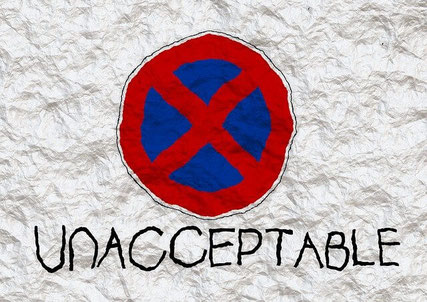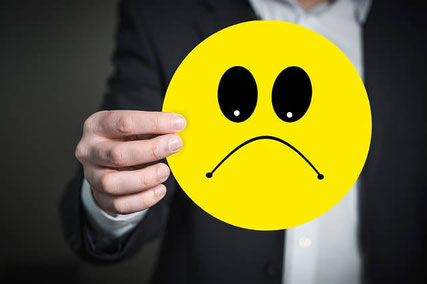Articles doling out happiness tips are ten-a-penny and people often gloss over them, so let’s try a different approach – the first of two columns offering suggestions on how to be unhappy.
SELF-CRITICISM

Relationship ended? Disappointing exam results? Not shedding those extra pounds? Well, make sure to criticise, blame and belittle yourself in the harshest way you can.
Routine self-criticism is psychologically devastating and is linked to depression, multiple anxiety and personality disorders, and eating disorders, amongst others.
Some people may try to persuade you that you’re not useless and unlovable, that you should become more self-compassionate, that you should view mistakes as learning opportunities, that your punitive views are unhelpful and untrue. They might recommend therapy or CBT books like Cognitive Behavioural Therapy For Dummies or Melanie Fennell’s Overcoming Low Self-esteem, but don’t listen to them. This article is all about how to be miserable, so this is my top tip: remember there is no faster route to unhappiness than beating yourself up as often as you can.
AVOIDANCE

Anxious about going to a social event? Don’t go. Nervous at the thought of that office meeting? Call in sick. Afraid of flying? Avoid airplanes. Think you deserve a pay rise but afraid to ask your boss? Don’t ask him. Prone to panic attacks and afraid you will panic in public places? Stay indoors. Like someone you know but afraid to ask them out for fear of rejection? Don’t ask them.
Avoidance brings short-term relief but long-term pain. It saps your confidence, validates your fears, and makes you more anxious. It makes your world smaller and smaller, stopping you from living the life you want.
Tackling avoidant habits is usually the first thing I work on with clients, but never mind that. If you want to be under-confident and unhappy, I can’t recommend avoidance enough.
WORRY

Worry keeps me safe, worry prepares me for the worst, it’s irresponsible not to worry – a mountain of research confirms chronic worriers have positive beliefs about worry, seeing it as a form of problem-solving and emotional regulation. Worriers also have negative beliefs about worry; they see worry as uncontrollable and thus worry about worrying.
These beliefs are untrue. Worry is controllable and it doesn’t keep you safe; it just makes you unhappy and, well, worried.
Similarly, most worries don’t come true. And when they do, people almost invariably deal with them better than they thought they would.
Most worry, then, is just wasted time. It’s a pointless habit that robs you of happiness. So, keep worrying, devoting as much time to it as you can.
DISCOUNT THE POSITIVES

Someone you know gave you a compliment? They were just being nice. People at work like you? They don’t know what you’re really like. You won a sports competition? Fine, but you could still have performed better. Someone said you did XYZ really well? Anyone could have done it.
CBT researchers describe low self-esteem as a prejudice towards yourself. Like any prejudice, you’re quick to spot evidence that confirms your negative beliefs but discount evidence that contradicts it.
Routinely discounting the positives makes sure your self-esteem stays on the floor. It also keeps people trapped in a perfectionist cycle, where nothing is ever really good enough. If you’re looking to steal the joy from a nice moment, I highly recommend this mood-lowering strategy.
DON'T EXERCISE

Active people are much less likely to be depressed. Exercise keeps us healthy, relieves stress and makes us feel better about ourselves. Even going for a simple walk in the evening can take you out of your head, quickly boosting your mood.
That said, when you’re tired after a long day, it can be tempting to say no to exercise, to lounge in front of the TV for hours on end. Thing is, mindlessly flicking through the TV channels or scrolling on your phone all too often dampens one’s mood. So, make sure to do that.
And while you’re at it, make sure to berate yourself for not exercising. Not exercising and simultaneously beating yourself up for not doing so – that’s some combination, ensuring your mood gets worse and worse.